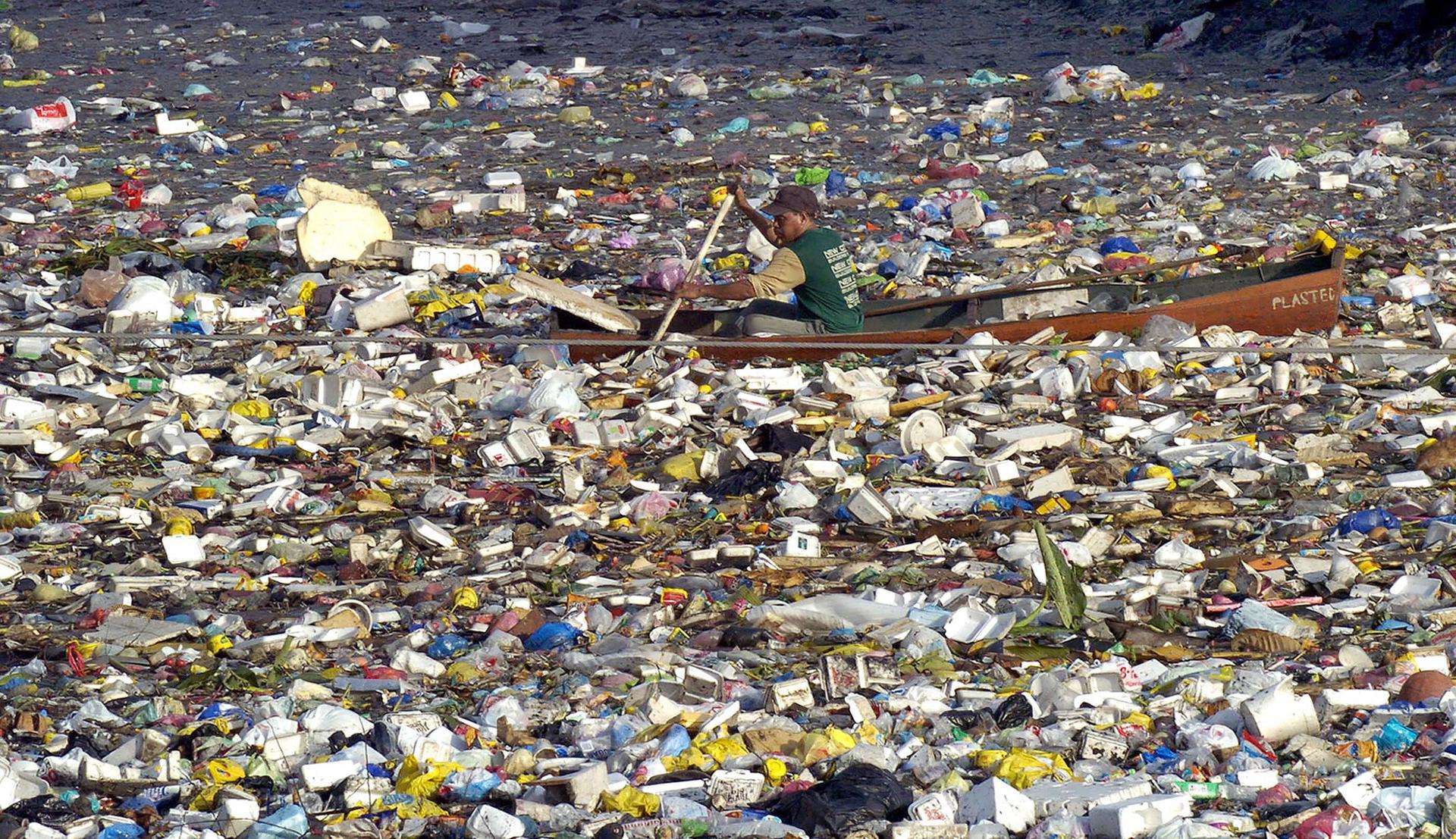Hawaii becomes first state to ban plastic bags
Hawaii has banned the use of plastic bags at grocery stores in an effort to help the environment. Here a scavenger in a dugout canoe paddles through a sea of garbage along a Manila waterway.
Hawaii has become the first state in the nation to have a state-wide ban on plastic bags.
"Passing the bans did take an effort — change always does — but people seemed to understand the need for such an effort," Robert Harris, director of the Sierra Club's Hawaii chapter, told msnbc.com.
Honolulu Mayor Peter Carlisle, who initially held back support of the measure, called the effort groundbreaking. The law specifically bans non-biodegradable plastic bags at checkout counters as well as paper bags that are not at least 40 percent recycled.
Grocery stores and other vendors have three years to comply with the ban that officially starts on July 15, 2015.
The Sierra Club has even higher ambitions than Hawaii. In 2009 the group announced plans to start a global campaign to ban plastic bags worldwide.
More from GlobalPost: Plastic garbage in the ocean: There’s more of it than previously estimated, report says
On their website they said, "Impossibly ambitious? Maybe. But it’s worth considering that China recently saved 1.6 million tons of petroleum when it banned ultra-thin bags from its stores, reducing plastic-bag consumption by 66 percent."
The ban on bags also came shortly after a new report from the Scripps Institution of Oceanography in San Diego found that The Great Pacific Garbage Patch has not only grown 100 fold in 40 years, it has also changed the way some marine life reproduce according to new research.
Bill Hickman, the Surfrider Foundation point person in Hawaii noted there are criticisms of the ban. he said many grocers believe their customers will simply switch to paper bags, which also have their own environmental impact. In a blog post on Surfrider's site, Hickman said, "While we are excited that the plastic bag bans have been enacted, there has been a reported increase in paper bag use from locals," adding they may eventually lobby for a fee to use paper bags as well.
Harris further told MSNBC, "Being a marine state, perhaps, we are exposed more directly to the impacts of plastic pollution and the damage it does to our environment. People in Hawaii are more likely to be in the water or in the outdoors and see the modern day tumbleweed — plastic bags — in the environment."
More from GlobalPost: Great Pacific Garbage Patch has grown 100-fold (VIDEO)
